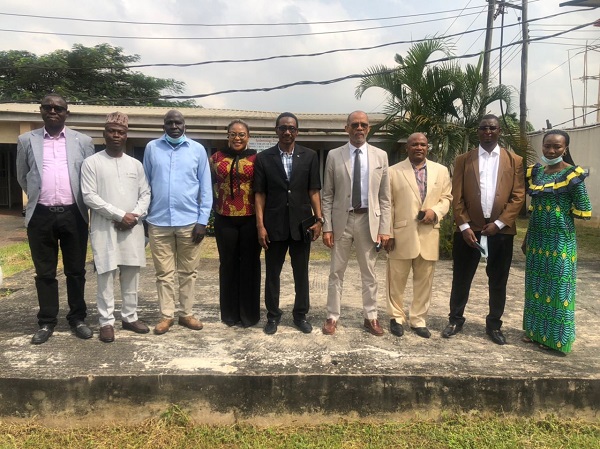
The Lagos State Commissioner for Health, Prof. Akin Abayomi has disclosed that the state keeps pandemics (like COVID-19) in check through a robust public-private approach.
Speaking during the Southwestern States Peer Learning Roundtable on COVID-19 and Health Security held at the Infectious Diseases Hospital (IDH) Yaba, organised by the African Health Budget Network (AHBN) in Lagos, Abayomi said that to successfully manage the pandemic, the state needed to deploy a competent and lean decision-making system to drive its response.
He said that the Incident Command System incorporates all the pillars of the state’s response into a centrally planned and agile decision-making system.
Abayomi added that the Incident Command System was led by the state governor, as the incident commander and the commissioner as deputy incident commander.
While narrating his state’s experience and response to the pandemic, the Ogun State Commissioner for Health, Dr. Tomi Coker, who pointed out that each state’s needs differ, lamented the high cost of managing a pandemic and called for the southwestern states to work together to strengthen their health security capabilities, in terms of testing and sample collection.
Also, she suggested that the region have a rack at the Lagos State Biobank to store all samples from the region for future reference.
The director, Lagos State Biobank, Dr. Bamidele Mutiu said private labs were selected in the state because they possess the equipment and expertise to test for COVID-19 within the parameters of the commission’s testing strategy.
Mutiu said the idea was to decentralise testing while maintaining the integrity and regulation of sample collection, testing and result validation in the state.
He further said that the state leveraged the capacity in the private sector to ramp up testing.
“Given the state’s decision to commence community-based care, polymerase chain reaction testing became more widely available.
“The idea was to decentralise testing while we maintained the integrity and regulation of sample collection, testing and result validation.
“There are currently a larger number of PCR machines in the private sector than there were in the public sector.
“The state government expected an increased request for tests as private organisations insisted on testing their employees before resumption,” he explained.
In his remarks, the chairman, National Advocates for Health (NA4H), Hon. Mohammed Usman said that as biological threats continue to be a significant international security concern, the COVID-19 pandemic has driven home the point that Nigeria must learn the lessons from past health emergencies and finally break the cycle of pandemic panic and neglect.
“It forced our health care and public health systems to stretch the capacity of the workforce and systems for disease surveillance, laboratory diagnostics and coordinating emergency responses,” he said.
Speaking, the coordinator, AHBN, Dr. Aminu Magashi said the need for collaboration in the region cannot be overemphasised.
Magashi said that the growing importance of health security intelligence and the role it can play in response to potential threats remained paramount.
He tasked the region to focus on intelligence collection, capability and threat mitigation and how this could be mobilised to address the harmful impacts of biological threats.

